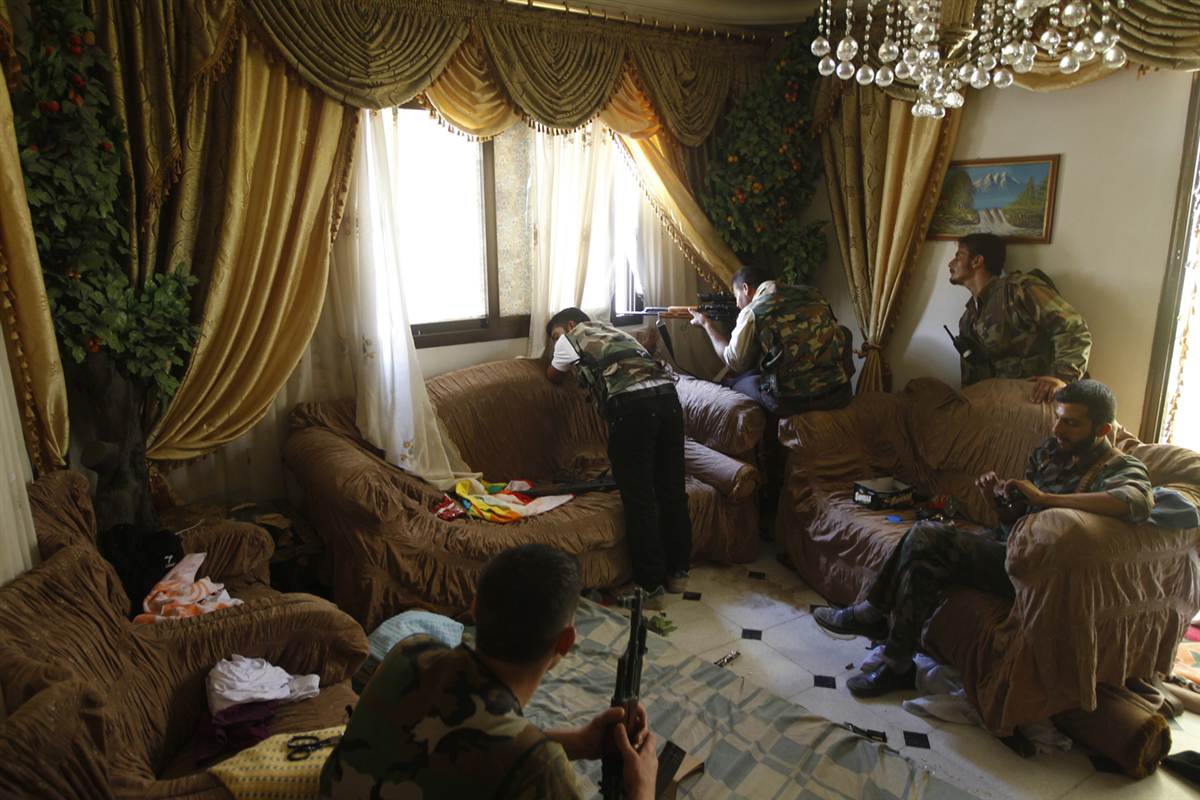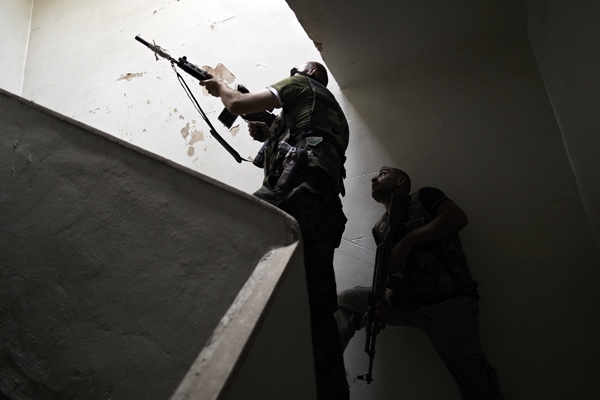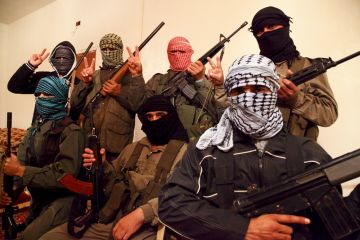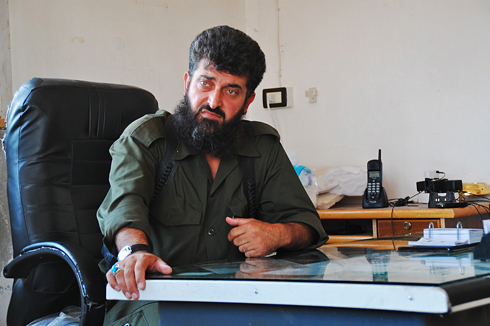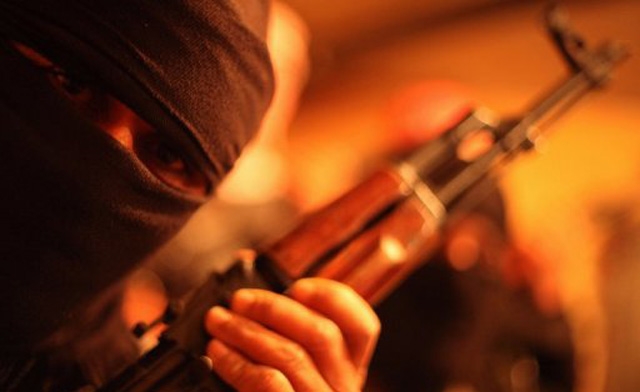Syria 1st-Hand: Life in Islamist-Controlled Raqqa (Abouzeid)
Mass demonstration in Raqqa last Friday
Raqqa City was once dubbed the “hotel of the revolution” because it became home to hundreds of thousands of people displaced from fighting elsewhere who sought refuge in a place considered firmly in the grip of Syrian President Bashar Assad. Earlier this month, however, the city in north central Syria, which was late to the anti-government revolt, became known for something else: It is the first and only provincial capital that Assad’s regime has completely lost — with the rebels taking control of it within the span of a week.
The regime will likely lose the entire province within days. There are only three remaining regime outposts in this vast eastern tribal area that extends all the way to the Turkish border: there’s Division 17 a few kilometers outside the city; the military airport at Tabqa about 40-to-50 kilometers away, and Brigade 93 in Ain Issa, some 70 kilometers away. All three positions are under heavy rebel attack and government counter-attack.
But here in Raqqa city, some 100 kilometers from the Turkish border crossing of Tal Abyad, the scars of war are faint. Warplanes still rumble in the air, mainly to aid the men besieged in Division 17, but, despite reports from earlier in the month, airstrikes and artillery shelling in the city are now rare.

 Sunday, March 24, 2013 at 6:45
Sunday, March 24, 2013 at 6:45